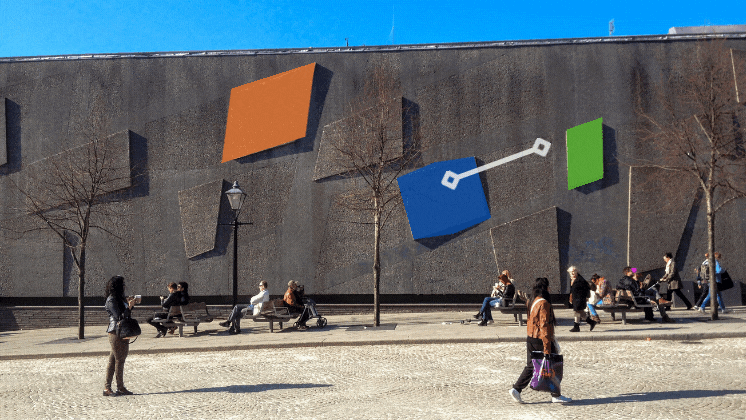For the past seven years, The City-Region Economic Development Institute (City-REDI) has worked to develop evidence- based policy engaged research at city and regional scale. In this post, Simon Collinson, Rebecca Riley, and Anne Green reflect on the experience of developing City-REDI and the factors that have enabled it to produce research tailored to the needs of regional stakeholders.
An invitation to write a chapter for a book titled ‘How to Engage Policy Makers with Your Research: The Art of Informing and Impacting Policy’ provided a legitimate excuse for a bit of post-hoc rationalisation alongside a genuine attempt to retrace the steps leading to the creation of City-REDI. Our contribution, “The City-Region Economic Development Institute – establishing a successful place-based research institute to support regions in turbulent times and beyond” explores how a vision for a research centre focused on geographically based or place-based impact evolved from a University investment in 2015 and subsequent developments up to the present day.
Before a brief explanation of how City-REDI has evolved, here is a quick introduction to what it does. Our consistent aim has been to develop a better understanding of city-regions as complex, integrated and unique economic, political and social systems. They have different strengths and weaknesses, opportunities and threats and varying potential growth paths. Policy interventions, therefore, need to be customised at this scale to be effective, and this requires a deeper understanding of how regions evolve along specific pathways than we currently have. You can find out more about us and what we have done on our City-REDI website here.
Reflecting on how City-REDI has grown to fulfil this mission (reasonably) successfully, it is noteworthy that luck plays a part, in terms of the timing and the context. The life blood of any research institute is funding and the idea for City-REDI came at a time when concern about regional inequalities across the UK (and beyond) began to grow. This concern had grown because (broadly since 2008) differences in productivity, prosperity and levels of opportunity and deprivation had also grown. These inequalities moved up the political hierarchy, recently becoming part of the ‘levelling up’ agenda in the UK. Although, probably short-lived, as government re-focuses on economic growth as a stand-alone priority, socio-economic equality will undoubtedly remain a central (academic and policy) challenge in the future. The regional dimensions of inequality are also unlikely to move far off the political agenda and now sit closer to centre of UKRI’s funding strategy than ever before.
Funding for City-REDI came initially from insightful leadership at the University of Birmingham in the form of discretionary investment funds (DIF) in 2015. Then, alongside a range of other funders including ESRC, AHRC, foundations, regional and national stakeholders and a large RED Fund award from Research England (UKRI) in 2019 to establish the consortium underpinning the West Midlands Regional Economic Development Institute (WMREDI) within City-REDI.
Beyond funding, a clear impetus for establishing our research programme came from local stakeholders looking to improve data and analysis to support policy interventions and provide evidence for necessary investments from central government. As our principal goal was to be a challenge-led research organisation, our hybrid structure, with academics alongside policy and data experts, is the result of deliberate design. Collaboration and co-production with partners who are responsible for designing and delivering interventions to promote ‘good growth’ at the regional and national levels, is key to what we do.
This means balancing, constantly, short-term, ‘market-led’ demands against longer term, academic aspirations for rigour and robustness in terms of data, analytical methods and empirical evidence. The core offer to stakeholders and policymakers, is a set of capabilities which consistently generate insights that add value to them. However, this also needs to flexibly adapt as new themes emerge (increasingly rapidly and temporarily, it seems) and move to the top of the agenda for the same stakeholders, politicians and funders. This occasionally involves changing the terminology while sticking to existing themes. But it also requires consciously balancing the more consistent, long-term academic themes in peer-reviewed papers, with a shifting range of topics of interest to a variety of stakeholders. The first attracts ‘ESRC-type’ funding and the second attracts contract and commissioned project funding. The two are complementary but need jointly managing.
How do we engage and where do we add value?
We took an approach based on identifying, understanding, and developing long-term relationships with partners. We also adopted consultancy-style selling approaches and invested in the skills, and the tools and techniques to complement these partners and contribute to their end-goals. This has been invaluable in ensuring our research findings are used and applied by our stakeholders.
The selection of stakeholders benefitted from a mapping approach which enabled us to look at the ability of our stakeholders to utilise our research and act on it, alongside their level of interest in our work. This helped us to prioritise them as partners and understand where our work could be best utilised as an input into the logic chain of policy and strategy development. This experience highlighted the need to continually reassess the motivations, expectations, and political priorities across existing and potential partners as part of an adaptive process.
As a result of this mapping, we created an external advisory board. This board is constituted from those stakeholders with interest, influence and greatest ability to utilise our work effectively. This included the West Midlands Combined Authority, the Mayor, Local Enterprise Partnerships, Local Authorities and the West Midlands Growth Company, alongside private sector and other representatives. Their role on our board is to help us understand their short- and long-term research needs and challenges but also enable them to capitalise on a broad set of ongoing projects. This helps us gain insights into key critical issues they may need to address in the future and whether our work can inform them.
One of the most significant issues facing some of the partners is the lack of capacity to develop evidence, monitoring and evaluation. Hence one robust method of generating impact and relationships has been secondments. The Institute has systematically placed experienced researchers into partner organisations; funding bids have also included this process. This has meant that partners have access to skills and capabilities they need, and they can actively shape research. Institute staff also develop their skills and knowledge on impact and understand the challenges of creating policy in a real-world environment, which is an asset now and for their future careers.
Capturing and measuring impacts is not solely a mechanistic ‘bean counting’ exercise. Assessing outcomes and measuring impact is at its heart a long-term, relational exercise. Building and maintaining relationships is key to research institutes with an applied policy focus. Those relationships, both formal and informal, are central to understanding what research policymakers need and how they might use research evidence, just as maintaining links and keeping abreast of emerging academic agendas is fundamental to good academic research.
The content generated on this blog is for information purposes only. This Article gives the views and opinions of the authors and does not reflect the views and opinions of the Impact of Social Science blog (the blog), nor of the London School of Economics and Political Science. Please review our comments policy if you have any concerns on posting a comment below.
Image Credit: Oliver Williams via Unsplash.









3 Comments